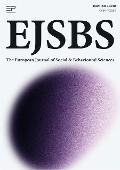
The European Journal of Social & Behavioural Sciences
Online ISSN: 2301-2218
European Publisher
About the Content of Estonian and Finnish Music Teachers’ Pedagogical Thinking
Table 2: Pedagogical thinking levels according to Estonian and Finnish music teachers’ responses
| Pedagogical thinking level | Summary of music teachers’ responses |
| Metatheory level | Socio-cultural aspects: tolerance towards different cultures; treasuring and transferring cultural heritage (the phenomenon of Song festivals in Estonia); influence on social relationships in society; understanding the differences with the help of music;Development of a personality: creativity, joy of music making (especially singing), intelligence, cultural versatility, harmony and balance, acknowledgement of common values, development of personalities who love music; feeling of success; identity building; source of self-confidence; experience of "good feeling"; finding the music style one likes;Aspects of music education value, traditions, history: music as a source of stability; the importance of arts in general education;Aspects of (music education philosophy): ideas of paraxial music education; the meaning/influence of music to "good life". |
| Object theory level | Theoretical criteria of music subject ( objectives, main concepts, formation of content, structure in teaching-learning process):knowledge about the national curricula and music syllabi;Reflections on one's own practice (techniques, methods, models etc): the music teaching ideas of Riho Päts; Carl Orff pedagogy; relative solmization method of Zoltan Kodaly.Perception of music syllabus as part of school curriculum: connections and influence of school leadership and music education; status of music subject. |
| Action level | Instructional process (musical activities in the lessons and extra-curricular events), especially musical activities (singing, music listening, playing an instrument, general musical knowledge, elementary musical literacy, musical movement, improvisation and composing, integration and holistic creativity, co-operation with other art subjects and field trips: attend concerts, performances, meeting musicians); working environment (lack of instruments, not enough space);Basic knowledge of content and skills, perception of techniques, methods, models: differences between knowledge and use of methods, approaches of music educationMusical skills of students, impact on teaching: the choice of music teaching practices according to the age or developmental level of the students;Contextual solutions in content prioritization; material and repertoire for music teaching: the use of music books-workbooks, searching – creating own teaching materials. |
